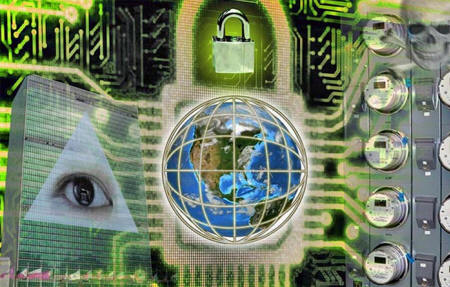|
December 18, 2013
The "Internet of Things" just wouldn’t be "Internet" enough if Google was not involved in a major way.
Fortunately for those who have designed the
gadget spy system, however, Google is attempting to become heavily involved
in the implementation of yet another piece of the technological control
grid.
At least that is the justification used to sell the technology to the public...
The real reasons behind both Google’s foray into
the relatively new field and those of other tech firms, governments, and
"sustainability"-related organizations are somewhat less interested in
consumer satisfaction, environmental health, and lower energy bills.
This new program is round two for Google, which attempted something similar a few years ago named Powermeter, although this program was terminated in mid-2011 due to "difficulties scaling it up."
The mission statement for Powermeter, similar to that of EnergySense,
Things are looking up for Google in this regard, however, as Josh Lowensohn of The Verge writes that,
Interestingly enough, Google Ventures already invested in Nest in 2012.
However, are we really expected to believe that,
The Verge’s Josh Lowensohn may be on to more than he knows when he writes that,
Data, indeed...
Google’s latest "new" venture is
but one more step in the merger between the "Internet of Things" and the
"Smart Grid," the solidification of the
surveillance state and eco-fascism
into one entity that itself is only part of a much larger agenda.
Smart Grid technology is a mayor part
of UN
Agenda 21, the United Nations' plan to herd a drastically reduced
population into "human habitat areas," meaning ultra-modern super cities
with stack em’ and pack em’ dwelling structures and zero contact with nature
and the outside world.
Petreaus himself
discussed the fact that, because of this
new technology, intelligence agencies will no longer need to place spy
devices
inside your home - you will do it for them.
And this is only what has been announced. It
doesn’t include the secret black projects that currently remain under wraps
or the fact that these
programs have been
ongoing for years.
Not only that, the snooping infrastructure is
such that one can assume that every piece of information that finds its way
into the Cloud will not eventually find its way to a centralized government
database, but will do so immediately.
However, one need only look around to understand that we are not in danger of turning into the Orwellian surveillance state in the near future.
We are already in it.
|

